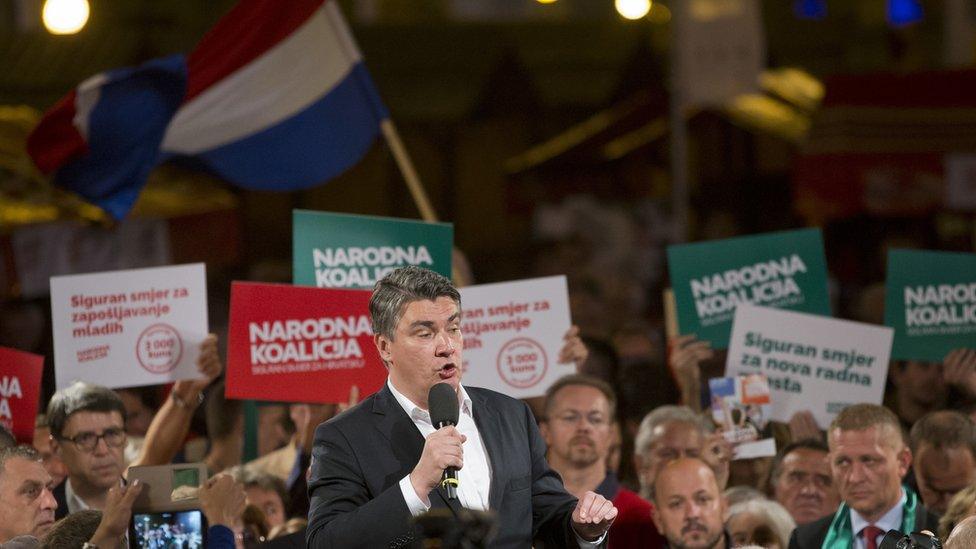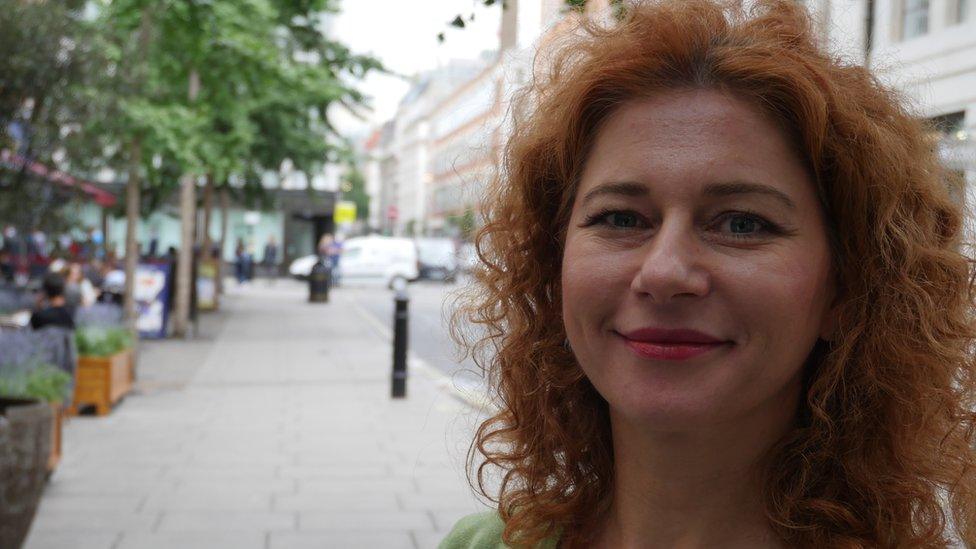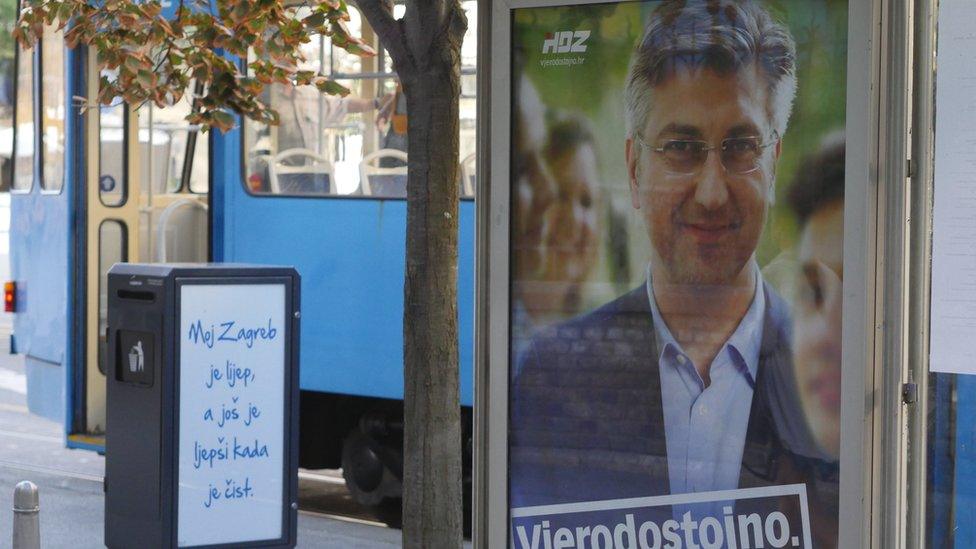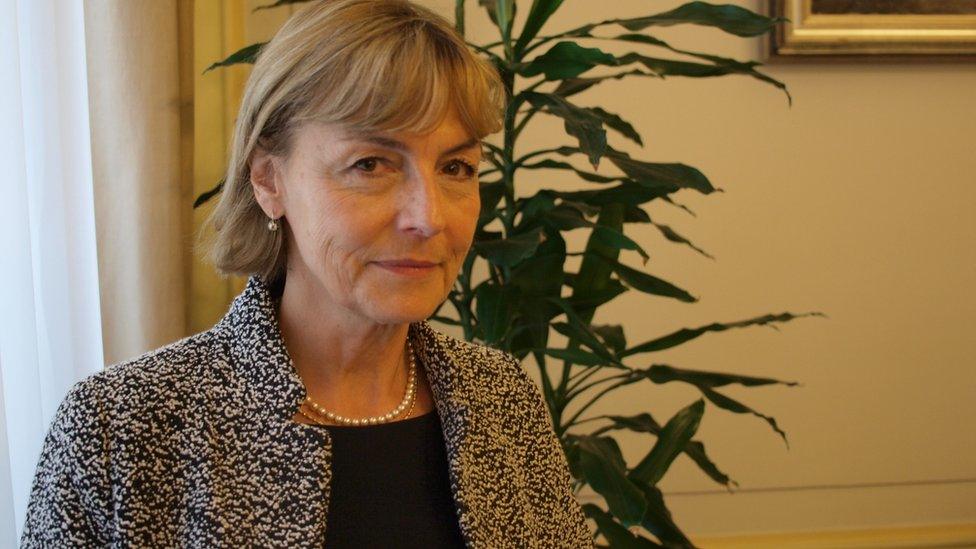Croatia vote overshadowed by nationalist rhetoric
- Published

As the rhetoric worsened, centre-left leader Zoran Milanovic enraged neighbouring Bosnia and Serbia
The rhetoric has turned ugly in the run-up to Croatia's second general election in less than 12 months.
Croatia joined the European Union three years ago, but nationalism and neighbour-bashing have become a feature of the debate. And memories of the Balkan Wars of the 1990s and World War Two have been stirred up as rivals try to bolster support and distract from domestic problems.
The nationalist HDZ, the largest party in the short-lived coalition government that fell apart in June, astonished most Croatians this year with its choice of culture minister.
Zlatko Hasanbegovic was a historian who had repeatedly venerated the genocidal, pro-Nazi Ustasha movement which ruled Croatia in World War Two as "heroes" and "martyrs".
Meanwhile, the short-lived Veterans Affairs Minister, Mijo Crnoja, caused still more outrage when he proposed a "register of traitors".
Read more on Croatia
Ugly rhetoric has not been limited to parties on the nationalist right.
Former Prime Minister Zoran Milanovic, leader of the centre-left Social Democratic Party, made a clumsy attempt to curry favour with veterans of the "Homeland War" of the 1990s.
International outrage ensued when his off-the-record remarks leaked out, in which he compared the current government of neighbouring Serbia to Nazi collaborators from World War Two.
Mr Milanovic followed this up by saying another neighbour, Bosnia, was full of "villains".

Senada Selo Sabic believes the onslaught of nationalism began after Croatia joined the EU in 2013
"It's sad to see the forces of the left are actually adopting populist discourse in order to win votes," says Senada Selo Sabic of Zagreb's Institute for Development and International Relations.
She says that nationalist sentiment was successfully buried during Croatia's decade-long EU accession process. But stifling debate in that time meant some issues were never properly debated.
"The sense of freedom came the moment Croatia joined the European Union in 2013. There was this sense of relief: now we are free to say what we want. This onslaught of nationalism and hardline speech is somehow the opening of a vent."
But the collapse of the last government has brought about at least a few changes.

Andrej Plenkovic was picked as HDZ leader in July and is seen as opposed to nationalism
The HDZ is running on its own this time, without any of the more extreme nationalist parties. And it has a new leader, Andrej Plenkovic, a former career diplomat who has a reputation as a moderate with little time for nationalist causes.
On the left, Zoran Milanovic is hoping to return to power with a coalition led by his Social Democrats. But his junior partners, the Croatian People's Party, are keen to steer him away from populism and back towards the sort of policies enacted during the four years when he was prime minister.
"I was always concerned with our main coalition partner sometimes flying off the handle in different circumstances," says Vesna Pusic, who served as foreign minister until January this year.

Former Foreign Minister Vesna Pusic is optimistic that the nationalist rhetoric will end after the election
"If you judge him by what he says there's need for concern occasionally.
"But if you judge him by what he did when we were in government, it's a completely different picture. What you hear and see in election campaigns are still echoes of the past, but hopefully that ends with the election campaign."
Of course that all depends on the make-up of the government which eventually emerges from Sunday's election.
The result has become of great interest not just to Croatians, but also to citizens of neighbouring countries who have no interest at all in rekindling the conflicts of the 1990s.